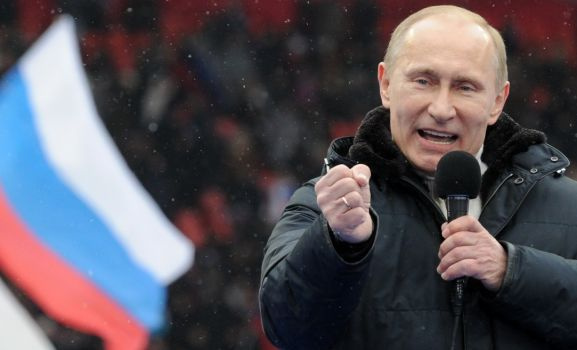With what priorities has the “Iron Man” returned to the helm of the Kremlin?
From economic reforms to the Bashar crisis and a nuclear Iran

Mahmood Shoori: Putin has returned to power at a time when international conditions are quite complicated. Economically, Europe is facing a crisis and experiencing special conditions. Politically, developments in Arab countries can impact Russia and former Soviet republic countries that are influenced by Russia. In foreign policy, the two issues of Syria and Iran are very important, which Putin should seriously participate in solving. Therefore, a difficult future can be foreseen for Putin in these matters and issues. It must also be noted that in its domestic economy, Russia has had less growth compared to the past but the volume of Russia’s financial reserves is relatively acceptable and investments have increased. Considering the fact that foreign investors have shown interest in Putin’s coming to power, this can give hope to Russia’s new president. In the domain of foreign policy, it can be said that Putin cannot take different measures. Although, knowing his background and viewpoints, he will certainly try to act with more determination, compared to Medvedev, the previous president, regarding foreign policy issues. With respect to issues such as relations with the West and the Missile Defense Shield, Putin will try to show more determination. Therefore, in general, conditions in Russia will not change drastically compared to the past, neither regarding internal issues nor foreign policy and the economy.
ID: You mentioned economic issues. Putin has said that Russia will become one of the world's five biggest economies in the next two to three years. Has he offered a new plan in this regard?
MS: Vladimir Putin has come forward with a specific economic program and he intends to take advantage of this opportunity and more seriously pursue the plan for Russia's modernization. Perhaps what promotes Russia's position further is not its economic growth, but the slower movement of other world competitors in comparison with this country, and this has caused Russia to have better growth than other countries. Another point is that, unlike European countries such as Greece and Spain, Russia has no severe economic problems.
Putin claims that he intends to transform Russia's nostalgia model into one that could be used by other countries. Apart from this, and considering oil revenues and the increase in oil prices, Putin will have more room for movement in the economic domain, while other countries face tough economic situations. However, it seems that Russia will become involved in global economic and financial issues in the long run, and, considering that the majority of Russia's economic relations are with Europe, the European economic crisis will have a negative impact on the Russian economy as well.
ID: Will relations with the West, particularly the U.S., also change?
MS: Other international issues define the type of relations with the US. Today, the issue of Syria is one of the important ones in which Russia does not wish to be identified as a loser. On the question of the Missile Defense Shield, despite interactions between the two sides, both have tried to reduce tension in recent years and each has, to a certain degree, withdrawn from its initial policies. As a consequence, the possibility of an agreement between Russia and the United States has increased, because they have no choice but to move towards an agreement on the issue of the Missile Defense Shield. However, on issues such as Syria or Iran, Russia and the West will continue to have tensions in their relations. Relations with the West should be analyzed in the context of whether a new issue will arise on the international scene or not. Another important issue is Afghanistan, which has caused Russia-West cooperation to become more serious, encompassing more areas of interaction. As we can witness, Russia has opened a corridor for transporting equipment to Afghanistan, because it is planned that by 2014, all U.S. forces will leave Afghanistan and therefore Russia will play a serious role in the transport of equipment. The point that Sergei Lavrov, the Russian foreign minister, unexpectedly stated on the issue of Afghanistan was that he was not in favor of a speedy withdrawal of NATO forces from Afghanistan. The announcement of such an opinion explains the high importance Russians attach to the security of Afghanistan, so much so that they are even prepared to accept the presence of U.S. forces in Afghanistan for a longer period of time.

